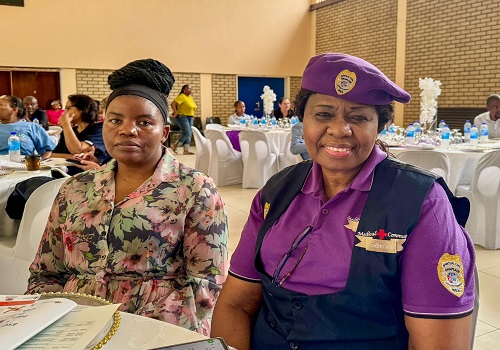
Koketso Maraba
“Palliative care is a fundamental human right, for improving the quality of life for patients and families facing life-threatening illnesses. In Gauteng, we have made commendable progress through the Wits/Gauteng Centre of Excellence for Palliative Care to provide communities with physical, emotional, social, and spiritual needs,” said MEC for Health and Wellness, Nomantu Nkomo-Ralehoko at the Palliative Care Symposium, held on Friday, 22 November.
Over the past 25 years, the Centre has made significant strides in improving palliative care services in Johannesburg. It has delivered comprehensive care to diverse communities, ensuring that individuals receive support to address their physical, emotional, social, and spiritual needs.
The Centre has also played a vital role in training healthcare professionals at various levels, from undergraduate to postgraduate and in-service training, therefore enhancing the capacity of the healthcare system.
Additionally, it has successfully re-established palliative care units at both Charlotte Maxeke Johannesburg Academic Hospital and the Soweto Comprehensive Cancer Centre, ensuring that specialised care is accessible to those who need it most.
Furthermore, the Centre has fostered strong partnerships with faith-based organisations, hospices, and academic institutions, to create a collaborative network committed to advancing palliative care. These achievements highlight the power of dedication and collaboration in transforming healthcare delivery and improving the quality of life for individuals.
In November 2023, the Gauteng Department of Health (GDoH) launched the ‘I Serve with a Smile’ campaign which aligns with principles of palliative care to improve patient experience of care by promoting empathy, compassion, and positive attitudes among healthcare workers. This was to encourage staff to approach their duties with enthusiasm and empathy, thus creating a more welcoming environment for patients.
In Gauteng, access to care is unequal, especially in rural and underserved areas. To address this, the GDoH is focused on expanding access by integrating palliative care into primary healthcare systems, bringing services closer to patients’ homes. The Department is also committed to training healthcare professionals to provide compassionate, person-centred care, and developing a provincial implementation plan to ensure funding supports these efforts and meets community needs.
MEC Nkomo-Ralehoko called for healthcare workers, researchers, and spiritual leaders to ensure that every patient, regardless of their background or condition, receives care that upholds their dignity and humanity.
SOURCED FROM THE GPG.

